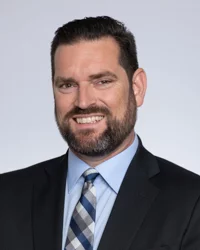When you see a Mandatory Settlement Conference (MSC) on your calendar in the next few weeks, we generally set a little mental note that says “Oh yeah, I need to get ready for that hearing.” But this touches on the large questions of what does this mean, what do you HAVE to do before a MSC, and what SHOULD you do before a MSC? The best advice is advice we have all heard for many, many years: don’t put off until tomorrow what you can do today.
There are legal requirements for what must be done before a MSC. We will look at those first, but also keep in mind the things that we can do before a hearing to either address the issues, resolve the claim, or soften the heart of the Pharaoh that is the applicant attorney into letting my discovery go.
Timely Objection:
First, should we even be at a MSC? Remember, a MSC is a hearing that will cut off discovery and move the issue or issues set in the Declaration of Readiness. If discovery is not complete, or if there are concerns that the evidence is not sufficient to present the case, do what your law school professors said to do if you ever woke up and were suddenly in the middle of trial: Object, Object, Object.
An objection to the DOR under 8 CCR 10744 is required to be done within 10 days of the service of the DOR. You must be specific in the objection regarding why the case should not be set for trial, or why the request hearing is not appropriate. An objection is a wise tool to use no matter the reason for the hearing. Even if the issue is a narrow one, say a discovery dispute or a medical treatment issue, an objection preserves the claim that further discovery, medical reporting, or other evidence is needed before the matter can be set for trial. Do not leave yourself in the position of having to set a case for trial solely because there was no objection to the DOR!!
Where to Start:
According to the Regs, there are some requirements that must occur prior to an MSC. Pursuant to California Code of Regulations section 10759:
The parties shall meet and confer prior to the mandatory settlement conference and, absent resolution of the dispute(s), the parties shall complete a joint Pre-Trial Conference Statement setting forth the issues and stipulations for trial, witnesses, and a list of exhibits by the close of the mandatory settlement conference. A defendant that has paid benefits shall have a current computer printout of benefits paid available for inspection at every mandatory settlement conference.
What exactly does meet and confer require? Obviously, you must reach out to the opposing party and discuss the issues; but what qualifies? Generally speaking, any form of contact should suffice if it will reasonably reach the correct party and open the lines of communication. This can include telephone, email, written correspondence, fax, or, if still accepted, carrier pigeon. More often than not, the WCJ will inquire at the time of the MSC as to what efforts have been made to meet and confer, and you should always be prepared with an answer.
Completion of the Pre-Trial Conference Statement by the close of the MSC has been a loosely interpreted clause, in practice. At some boards, it is required for the PTCS be completed by all parties, executed and uploaded ahead of time so that the WCJ can review with the parties at the time of trial setting. At other boards, the PTCS can be e-mailed to the board, or e-filed by close of business. In still other situations, the parties may be given days or even a week to complete the pleading, and will still be allowed to set the matter for trial.
Given the disparate interpretation of this clause, it is always best to have your PTCS completed prior to the MSC. Identify your exhibits with specificity to comply with 10759(c) regarding the listing of exhibits. If it is not possible to complete the PTCS, or if your opposing party will not participate, complete and file it prior to the hearing for the client.
You never know if a judge will set the matter for trial even if no one asks for it (this has happened to your humble blogger). It is also advisable to familiarize yourself with the requirements at the WCAB before which you are set.
Finally, the provision regarding availability of a benefit printout (BPO) is fairly simple to interpret. If any benefit has been paid, Defendant must have a BPO available for inspection at the time of an MSC. As claims adjusters may not always be available on the day of hearing, this should always be requested from them prior to the hearing in the event that an inspection is requested. This prior contact with the adjuster also allows counsel to discuss the pending issues with the client, as well as discuss and obtain any settlement authority that might be necessary.
What to Prepare:
You will need settlement documents headed into any MSC. Even if the case does not look like it will settle, the existence of a court date makes many applicants come forward and want to resolve their claim. Since authority is required at the MSC by the Labor Code, negotiation of a Compromise and Release is facilitated through the already completed settlement documents.
Under California Code of Regulations section 10752, each required party shall have a person available with settlement authority at all hearings. In the days leading up to the hearing, make sure authority for resolution of the claim is available, and that you have a contact person you can speak with at the time of the hearing.
Finally, call the other side. Not just to fulfill the meet and confer requirements, but to really talk about the issues. Whether it is an applicant attorney, a lien claimant, or a persistent cost petitioner, the issues can often be worked out with a simple discussion. If you wait until the hearing, the other side is likely to feel like they must push a case forward even if they don’t think that it is ready just to get something done. If you can discuss the issues, and address the concerns prior to the hearing, a simple off calendar will greet you on the day of the MSC.
Zane P. Uribarri is a partner at Bradford and Barthel’s Ontario office. If you have questions about workers’ compensation defense issues, please feel free to contact Zane at zuribarri@bradfordbarthel.com or by calling 909.476.0552.
Viewing this website does not form an attorney/client relationship between you and Bradford & Barthel, LLP or any of its attorneys. This website is for informational purposes only and does not contain legal advice. Please do not act or refrain from acting based on anything you read on this site. This document is not a substitute for legal advice and may not address every factual scenario. If you have a legal question, we encourage you to contact your favorite Bradford & Barthel, LLP attorney to discuss the legal issues applicable to your unique case. No website is entirely secure, so please be cautious with information provided through the contact form or email. Do not assume confidentiality exists in anything you send through this website or email, until an attorney/client relationship is formed.



